In Dungeons and Dragons, one person at the table bears the weighty responsibility of managing the game and creating an enjoyable, immersive experience for the players, the DM. The DM has a lot of jobs, but most importantly, they are the person who facilitates and tells the campaign’s story, as well as handle and uphold the rules. They must also act, improvise, weave a narrative, manage players, and guide everyone through the adventure. So yes, it’s quite a big undertaking.
Naturally, it can be scary to be a DM, and the first time you decide to do it may be wrought with doubts or confusion. But worry not, since every DM has had the same feelings or fears, and it’s natural to be unsure where to start. To help you get your first campaign up and running, we’ve put together this guide with tips and advice for new DMs to D&D, including how to prepare a session, interpret rules, and get your players prepared and make your session run smoothly.
Related: Dungeons & Dragons: Starting Tips For New Players
Have A Session Zero
Image via Shutterstock/Collective Arcana
Running a campaign in D&D can be daunting, especially with multiple people with different ideas and expectations for what your campaign will be. You may also feel nervous about jumping straight into an adventure without discussing with your players what they are playing or thinking. That’s where Session Zero comes in.
A Session Zero is best described as a pre-campaign prep session, where you and your players can discuss your campaign in detail before you jump into the real thing. There are a few key things to consider and address in Session Zero, such as setting and managing player expectations, creating and developing characters, explaining the tone and world of your campaign, and going over any house rules, table etiquette, and key details of your campaign.
It’s an excellent chance for players to introduce themselves, build their characters and party, and ask questions about your world so everyone can be on the same page before starting your adventure. It’s also great for sorting out of game issues, such as safeguarding and safety tools, your play schedule, and how and where you will be playing.
Having a Session Zero can go a long way to making your campaign run smoothly, setting your mind at ease, and building excitement for your campaign, so be sure to take the time to have one if you can. There are many resources online and in some official books, such as Tasha’s Cauldron of Everything, that can give you some pointers too.
Find Your Style and Refine It
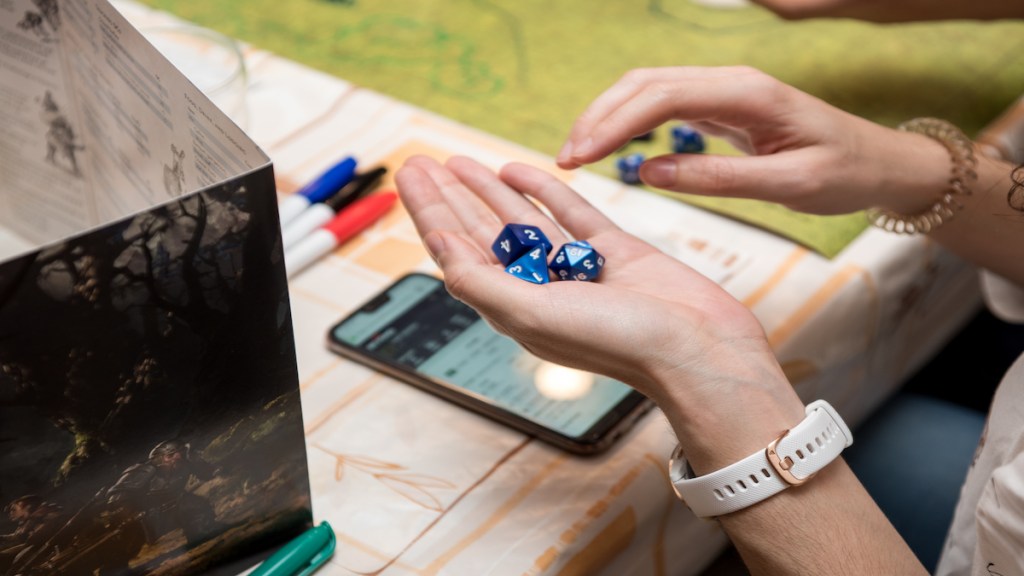 Image via Shutterstock/Rizar el pixel
Image via Shutterstock/Rizar el pixel
As a DM, it’s easy to fall into the trap of feeling like you need to be good at every aspect of the role to be good and to make a compelling campaign. But we have something to tell you; you don’t.
Much like being a player, being a DM is a unique experience that is different for everyone, and the best DM you can be is to play to skillset and what you enjoy about doing it. People will have different styles and approaches to who they want to run their games. Some will love deep lore and backstories, create characters with distinct voices, and enjoy roleplay. Some may find that nerve-wracking and not want to focus on that as much. You may have a DM who uses loads of miniatures on the table to represent an encounter or scenario visually. Others may prefer the “theatre of the mind” approach and show off their writing and creative skills. Some may prefer digital, some analog.
Related: Session Zero in D&D Explained
There are countless types of DM, and you should find what you enjoy and what works for you and refine that over time. As your confidence grows, you may dip into new ways to DM and experiment; it’s all part of the process. Being a good DM is an art form, not a set methodology, so discover and craft how you want to do it.
You Don’t Need to Know It All
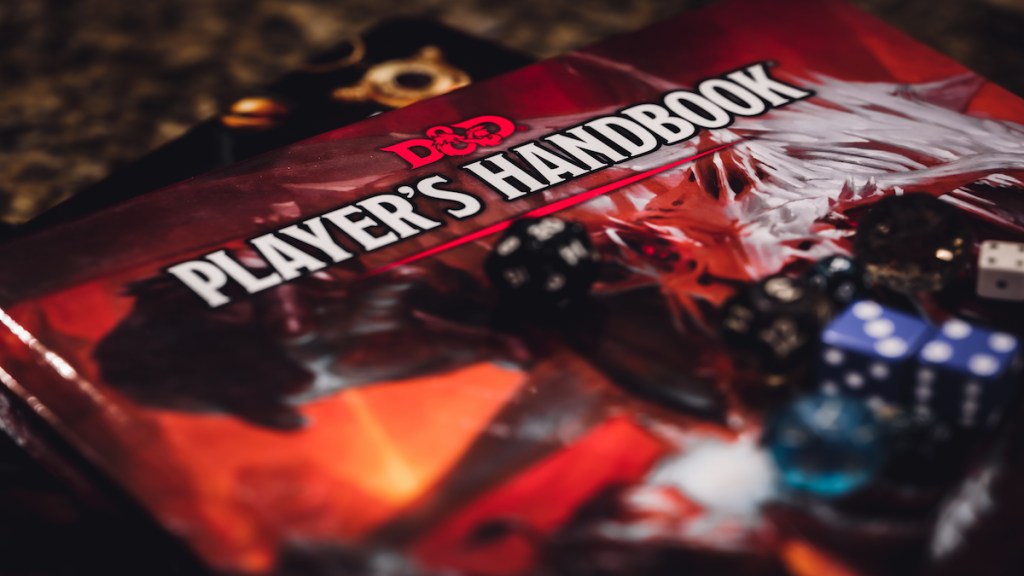 Image via Shutterstock/Lost_in_the_Midwest
Image via Shutterstock/Lost_in_the_Midwest
If you are going to DM, you will need a pretty good understanding of the rules of D&D; that much is a given. But that doesn’t mean you need to know every single rule or page of the Dungeon Masters Guide or Players Handbook.
When you first think about being a DM, don’t feel pressured into trying to learn every aspect of the game by heart, there is way too much to remember, and it’s just not going to happen. Instead, we recommend you give both the Dungeon Masters Guide and Players Handbook a good once over, especially the bits you may be unsure of, and maybe add bookmarks on sections you think you need to check regularly. You can also write some small notes that you can keep handy if a situation arises and you need to check them.
More importantly, there is nothing wrong with saying you don’t know an answer or aren’t sure about something in a session. You can take a second to check it over while players wait a moment, or you can always improvise something instead. Good players will have no issue with this, and those who do should find another group.
Improvise and Go With the Flow
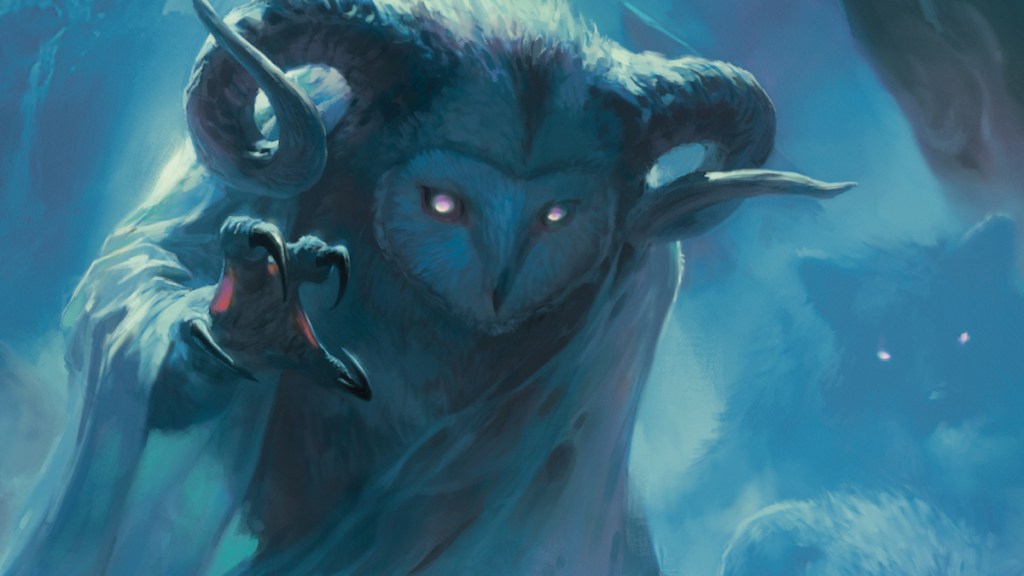 Image Via Wizards of the Coast
Image Via Wizards of the Coast
In a game like D&D, nothing will ever go exactly as you planned, with players having different ideas or motivations, which will lead to some unexpected outcomes. And that’s ok; that’s one of the best parts of the game.
You can’t know every single possible way a player or party will approach a situation. Often you will be faced with an outlandish idea from a player, and if they role well, it could upend a boss fight or roleplay moment entirely, and you may be left a bit flabbergasted. You shouldn’t be scared of this; it’s something to embrace. As a DM, you’ll need to learn to be flexible and prepared to improvise at a moment’s notice and do so in a way that lets your players go wild with the possibilities at their fingertips.
Of course, that doesn’t necessarily mean letting them do what they want all the time or throw out ideas completely. It’s your job as a DM to resolve actions by your players and to lightly steer, nudge, and guide them through their actions, and to that, you need to be willing to work with them and around some of their outlandish ideas at times.
Related: Best race and class combinations in Dungeons & Dragons (5th Edition)
Yes, it can feel disheartening if you plan an epic battle and your players figure out how to work around it, but consider how awesome it is that they found a unique way to deal with the situation. For both the DM and players, it can lead to some of the most memorable moments, and being prepared and able to go off plan and work on the fly can be just as exciting as your original idea.
This goes for all manner of things, including NPCs, locations, and backstory moments. Players could suddenly love NPC you introduce, and you may end up making up an incredible story for them that players latch on to. It’s all part of the fun, so keep your eyes and ears open and go with the flow.
You Dont Need to Prepare Everything
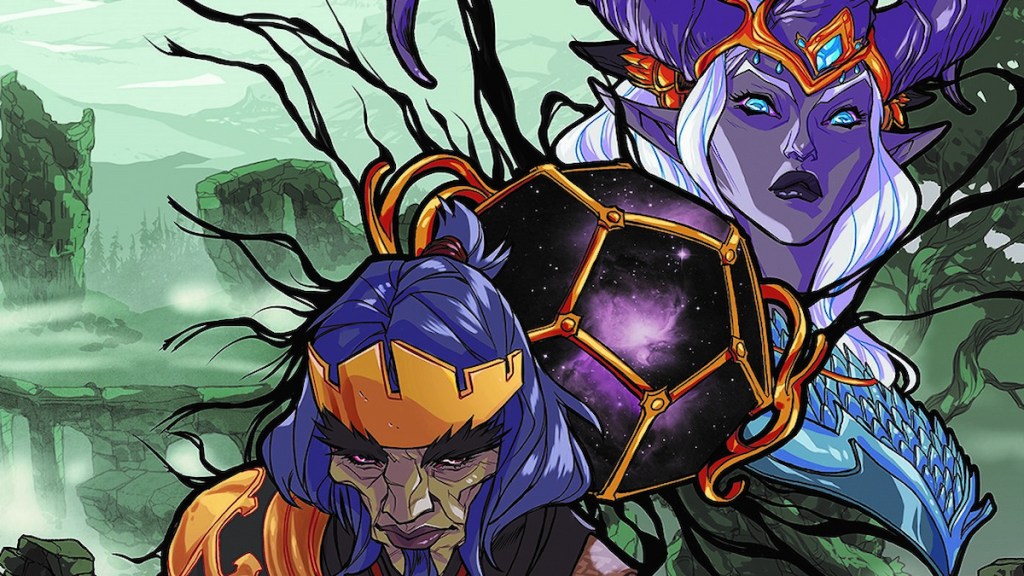 Image Via Wizards of the Coast
Image Via Wizards of the Coast
It can be easy when you first start being a DM to feel like you need to plan and prepare for each session, creating tons of characters and NPCs, rich settings, and story moments. If it sounds like a lot of work, that’s because it is, so let us tell you; You don’t need to.
When approaching each session, you should only plan as much as you need and feel comfortable and able to do so. Having a rough outline or plot for a session is a good idea, but the finer details can emerge as you play thanks to your player’s actions and involvement. As we’ve said, the game can be unpredictable. If you spend hours crafting a specific encounter or writing huge lore and setting details but players completely ignore it for a simple bar maiden, you will likely be slightly annoyed.
Related: Dungeons & Dragons: Every Class To Play As in 5e
The whole idea of being a DM is to guide and react to your players, not control them, so having simple and adaptable plans and objectives can go a long way to making your time as a DM less stressful and hopefully more fulfilling. Think about it; your players may give you so many great moments and ideas that you can tweak and create some awesome moments thanks to your ability to adapt. Like we said before, go with the flow, plan accordingly, and try not to stress it too much.
Prep Work and Resources
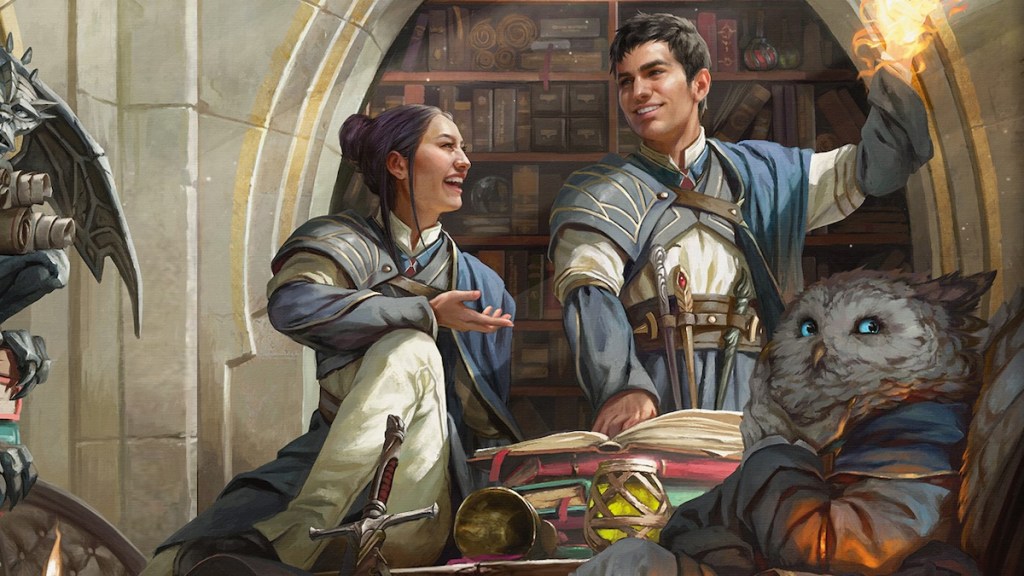 Image Via Wizards of the Coast
Image Via Wizards of the Coast
Ok, this may seem a bit contradictory given what we just said, but taking the time to do some degree of prep and organization can be just as helpful for you when you are trying to run a campaign. Plus, it will make your life and the player’s lives a lot easier.
A lot can happen in a D&D session, and it’s up to you as the DM to navigate and guide players through their experience. While it can be intimidating, taking some time to prep your play area with everything you need can make it an easier experience. As we’ve previously said, only do as much prep and organizing as you need or feel ok with, but we can recommend a few tips that will help you keep your party on track and you prepared for whatever happens.
Having some rough notes at the ready can be extremely helpful if you need to improvise in a pinch or want to have a rough outline of your session plan. These could be names for locations, NPCs, or little fun plot ideas that you can work in. Trust us, having a cheat sheet like this can help keep the game moving and ease some nerves when you need to improv as a bartender or new enemy. Having some little secrets or clues to other plot points or encounters can be an excellent way to keep players engaged and grow your narrative, so maybe consider adding some; just try not to make them too integral to your plot to avoid unnecessary planning.
Additionally, there is a ton of resources online that can help you prepare your sessions. Sites like Kobold Fight Club or Donjon Generator can be great for setting up combat encounters, or use may Inkarnate or Roll20 for creating maps big or small. Perhaps you find using the official tools on D&D Beyond easier. The point is there is a wealth of tools and resources out there that can help you prepare an exciting session, and it’s up to you to find what works for you so you can prepare accordingly and make the best campaign possible.
If You Are Nervous, Run a Pre-written Adventure
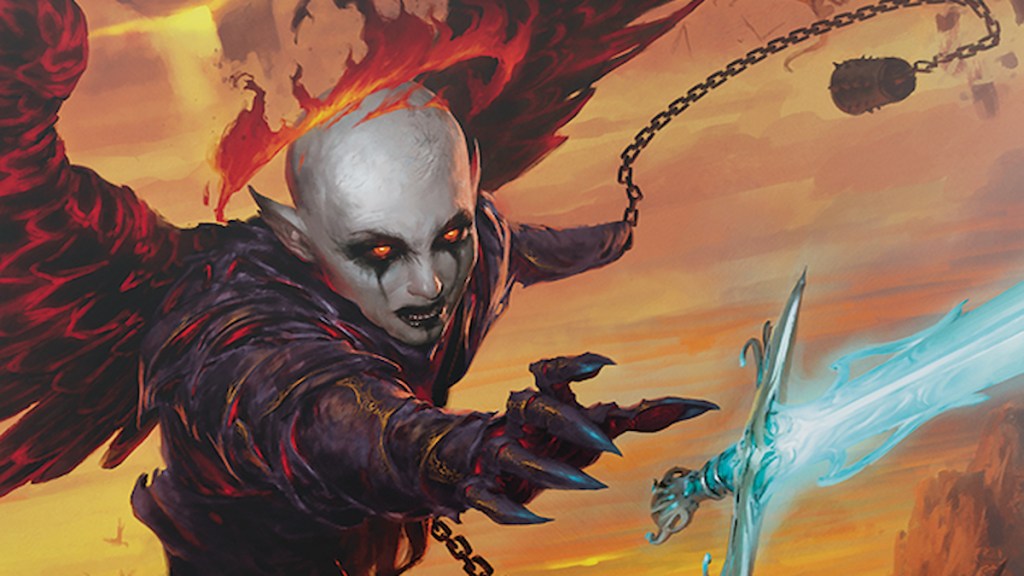 Image Via Wizards of the Coast
Image Via Wizards of the Coast
It can be natural to want to jump in and begin creating your own world for a campaign, complete with your own fully-fledged NPCs and plots. But then you quickly realize it is a ton of work and incredibly scary for a new DM. Thankfully, there is an answer to this problem, pre-written adventure.
D&D has a ton of pre-written adventures like Keys from the Golden Vault or Icewind Dale that players can use to run one-shots or long campaigns, each with different stories, characters, and unique twists to enjoy. These can be a major help for a new DM who wants an easier start to their journey in the role and can be helpful teaching tools. They contain tons of details on the campaign itself, its main characters, narratives, monsters, and other important facts you can read, learn from, and apply to your own ideas in the future. There is also a starter kit with a small campaign perfect for new players and DMs.
Of course, at some point, you may want to create your own campaign, and that’s awesome, and we encourage you to do so when you feel confident enough. But starting with a pre-written adventure can help get the wheels turning and give you valuable insight into how to build your world, and we think it’s a worthwhile investment. Plus, some of the adventures are really good.
The Rules Are a Guideline
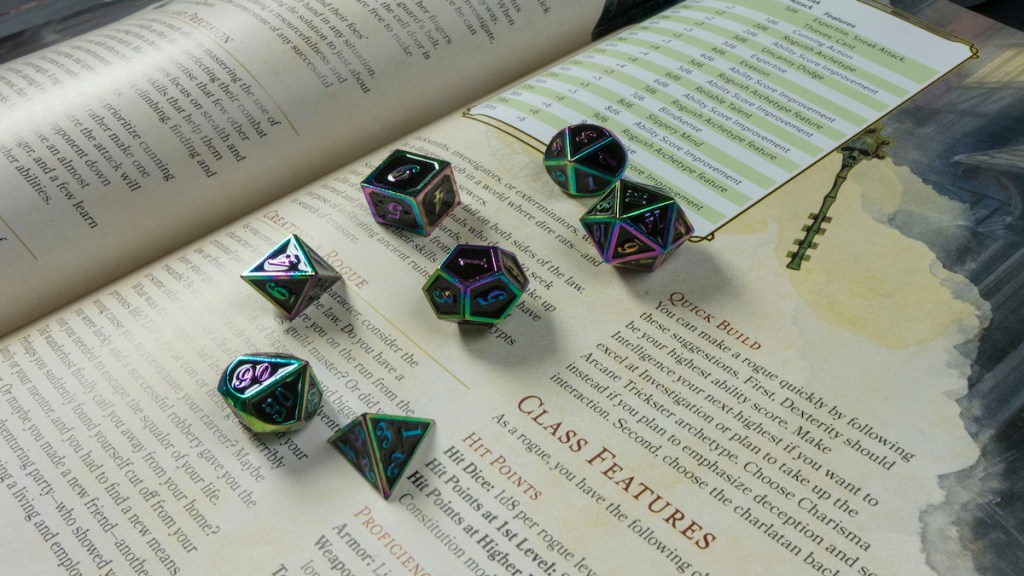 Image via Shutterstock/CiEll
Image via Shutterstock/CiEll
We said this in our new player’s guide, and the same applies to DM’s, new and old. The rules of D&D are a great resource; they can help guide you and your players through an exciting adventure and provide valuable information and systems to make that happen. But it’s not the gospel, and you shouldn’t treat it as such.
Sometimes in D&D or any TTRPG for that matter, rules can get in the way or limit players, and as a DM, it’s up to you to know when and where to bend and break rules for the sake of great storytelling and player moments. For some, this is called the “rule of cool,” which is exactly how it sounds; if players suggest an action or plan that will benefit the story and characters, let them try it. At the end of the day, you want the game to be fun, and when the rules get in the way of that – without completely breaking the game – then you should throw them out for a moment and see what happens.
Related: DnD 5E Should Make Popular Potion Homebrew Rule Canon
This applies to everything in D&D. If a boss is too weak or strong and you want to adjust it on the fly; you can do that. Maybe throw in a few new minions to distract players, or have the boss run to a new room and adjust its stats. Perhaps a player wants to use a weapon or spell in an unconventional way. Always approach every situation and player action with a “yes, and…” approach. Let them tell you, discuss, bend, or break a rule or two, and see what happens. It can lead to some fantastic moments.
Does this mean you should do it often or throw out the rules entirely? No, the designers have gone to great lengths to make the rules and you should trust they will guide you the right way. But in those moments you see a potential amazing moment for your players; you should let it fly. Be sparing and cautious about how you do it, but always be open to it.
Work With Your Players, Not Against Them
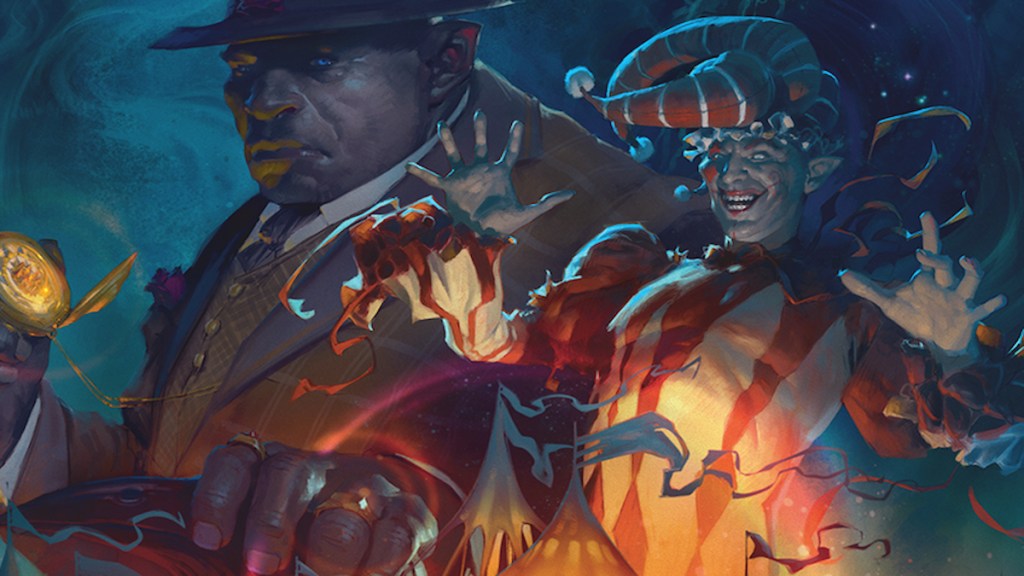 Image Via Wizards of the Coast
Image Via Wizards of the Coast
This may seem like common knowledge, but it’s always worth repeating. TTRPGs like D&D are not a competitive experience; they are designed to be cooperative storytelling games enjoyed and created together, including the DM. You should work alongside your players to accomplish that goal, not try to hinder them.
When you are a DM, you should be trying to provide an immersive adventure for your players, filled with challenges and moments of great excitement, but you need to do it for the benefit of your campaign. If players are asking questions to help them enjoy the game and understand certain elements and you shut them down, they aren’t going to like that. What about making each combat encounter a grueling slugfest that causes more stress than excitement, where players constantly feel like they are just trying to kill their characters? Or creating situations where players don’t get to use features or have a moment to shine. You want positive situations and scenarios your players can thrive in, but challenge them to play creatively and together.
For example, if you want to use flying enemies, have interesting ways a player could handle them if they do not have ranged weapons. Perhaps you want to make a challenging roleplay moment, so why not make it an interesting debate that players can collaborate on? Creating compelling scenarios that you and players can feel excited and creative about is the best kind of experience you can have in D&D.
Of course, some campaigns will want to be gritty or challenging, and that doesn’t mean you should make everything easy all the time. But, always try to create moments with your players so they can feel like heroes and adventurers, and do so in a way that you will all enjoy and remember.
Ask Online and Watch Other DMs (But Don’t Compare Yourself to Them)
 Image Via Wizards of the Coast
Image Via Wizards of the Coast
There is a lot to think about when you are a DM, and there is nothing wrong with getting some advice, pointers, or looking for tips from other DM and players, and there are tons of resources online where you can find it.
Places like Reddit and Twitter have entire communities around being a DM and offer stories and advice for those new to the role. They may also have some interesting house rules or post content like homebrew enemies or items you want to try using in your campaign. It’s always worth checking these out and seeing if you can pick up some new tools to help you as a DM. Of course, there are some bad eggs in there too, but you can ignore players like that and instead focus on the nice ones who want to share and enjoy the game and community.
Related: D&D Reveals First Look At Upcoming Dungeon Master’s Guide
It’s also not a bad shout to watch some other DM’s do their thing, whether that’s friends or popular online creators like Matt Mercer of Critical Role. Seeing someone DM in real time can help you grasp what you’ll be doing and how to approach situations, and it can end up putting you at ease once you see what the role entails. That said, you shouldn’t feel dishearted and compare yourself to them.
DM’s all play and run their games differently and have their strengths and weaknesses, same as you, and you shouldn’t think you are doing a worse job because you might not like to put on a silly voice or don’t have all the miniatures. Or have a set with ridiculous production value. Look to them for inspiration and a chance to learn, but be the best DM that YOU can be, and play how you want to.

